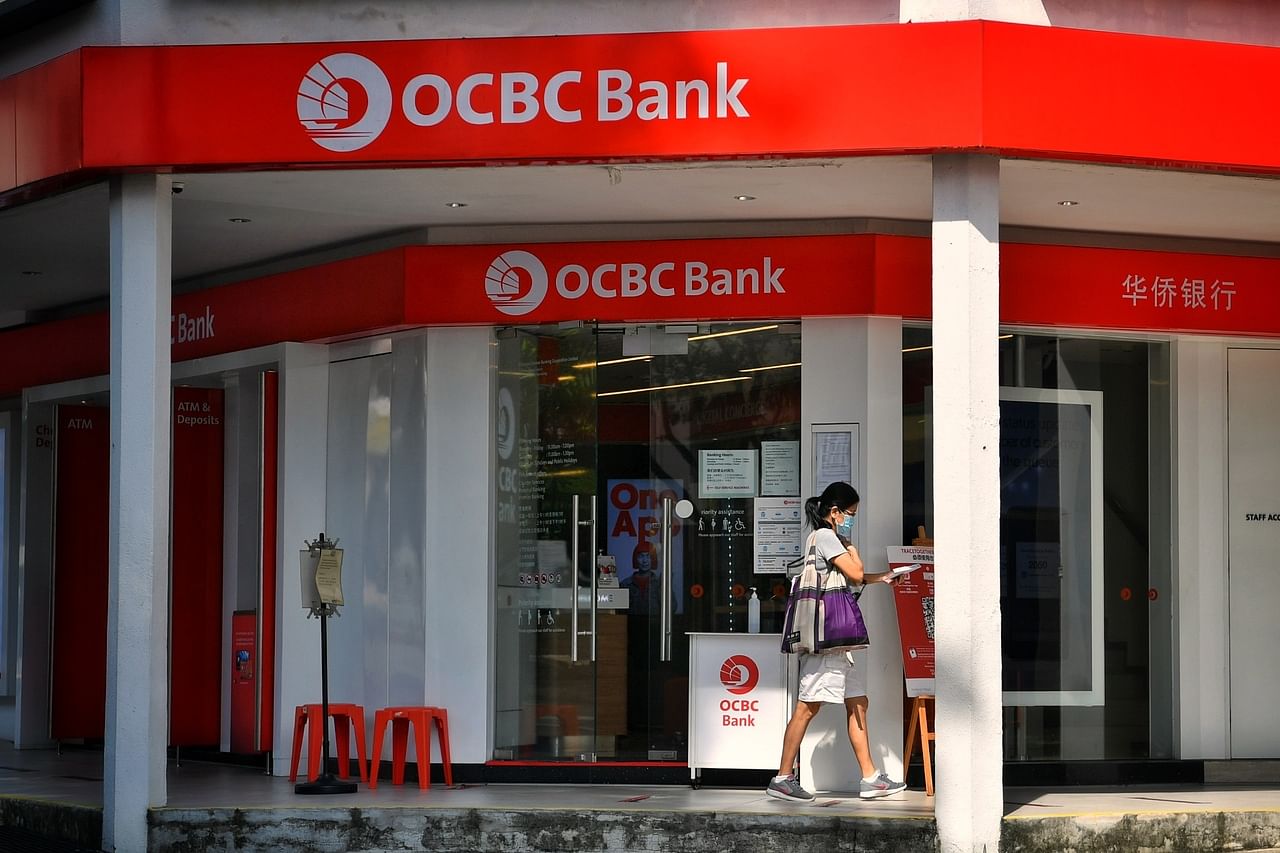OCBC Bank has been making goodwill payments to SMS scam victims since Jan 8
Sign up now: Get ST's newsletters delivered to your inbox

The bank said more than 30 customers have received the payouts so far.
ST PHOTO: CHONG JUN LIANG
SINGAPORE - OCBC Bank said on Monday (Jan 17) that it has already been making goodwill payments to customers who lost funds from their bank accounts in a recent spate of SMS phishing scams.
The bank said it has been doing so since Jan 8 and that more than 30 customers have received the payments so far.
"The payouts to this group of customers are made on a goodwill basis after thorough verification, taking into account the circumstances of each case," OCBC said, adding that affected customers will be contacted as soon as the review and validation process for their cases is completed.
Nearly 470 customers lost at least $8.5 million to fraudulent fund transfers in December last year after scammers posed as OCBC and sent SMSes to victims with links to phishing sites.
When asked by The Straits Times, the bank did not reveal how much it has paid out or if it intends to fully compensate every victim.
Banks have, out of goodwill, not required victims to pay for fraudulent transactions in the past.
In a series of fake credit card payments totalling about $500,000 flagged by the authorities in September last year, affected customers did not have to pay for them if they had taken steps to protect their credentials.
Lawyers have previously said victims misled into giving out their banking details in phishing scams are often responsible for the funds lost, especially if the bank’s information technology system is up to the mark and not compromised.
OCBC said on Monday that it needed more time to get back to affected customers to address their concerns, as the investigations into the cases are extensive, involving multiple checks and parties.
“I sincerely ask our customers to allow us the time to conduct a thorough review and validation before we inform them of the payouts,” said OCBC Bank group chief executive Helen Wong.
“We seek our customers’ patience and understanding as investigations are complex, and we apologise that our response fell short of our customers’ expectations during their time of distress.”
Some victims claimed that the bank took a long time – 20 minutes or more in some instances – to respond to their calls for help after they noticed suspicious activities. By the time the bank was able to act, the victims had lost much of their funds.
Many victims reportedly fell for the ruse because the fake SMSes were grouped by their phones together with legitimate messages previously sent by the bank for one-time passwords and transaction alerts.
This happened as the scammers had spoofed the OCBC name used for sending out official SMSes.

With the details, including one-time passwords that they stole, the fraudsters made fund transfers, in some cases wiping out victims’ life savings.
OCBC on Monday said that the scam, which it described as “particularly aggressive and highly coordinated”, preyed on people’s fear that there was an issue with their bank accounts or credit cards.
Victims had clicked on a link in SMS messages, which led them to a bogus bank website where they keyed in their Internet banking account login details.
Victims had clicked on a link in SMS messages, which led them to a bogus bank website where they keyed in their Internet banking account login details.
Past cases of SMS phishing scams largely targeted consumers with “too good to be true” deals.
The bank also sought to address criticisms from some customers that claimed they did not receive sufficient warning on the scams, which surfaced in early December and became more aggressive during the year-end holiday period.
OCBC said that since Dec 3, it has issued multiple alerts and warnings to its customers, such as on its website, Internet and mobile banking login pages, e-mails and social media channels.
Media advisories from the bank were also issued on Dec 23 and 30, and SMS texts were sent to all customers on Dec 30 and Jan 4.
OCBC added that it reached out to customers who might not be aware that their banking activities were susceptible to the scam. “This has helped to prevent more customers from falling prey to the scam,” it said.
Ms Wong assured customers and members of the public that OCBC’s banking systems and digital banking platforms “are safe and secure”.
“Digital banking remains a convenient way to do banking. We do not want this scam to take that away from us,” she said.
However, she pointed out that scammers are becoming more sophisticated and urged customers to stay alert and bank only at OCBC’s official websites and official mobile apps.


